The first impressions I had of this week’s Gospel reading was the cruelty and harshness of the Parable of the Tenants which seemed at odds with the usual tone of Jesus’ parables. Even when Jesus told the parable it was contentious, as the Pharisees would have realized that it was an allegorical story that criticized their position and their teachings and told of Jesus’ authority. In the parable the landowner represents God. The generous landowner has prepared a fertile vineyard which is leased out to tenants. All goes well until harvest time when the landowner does not receive his share of the harvest, which is bad enough, but in those times a neglectful landowner could easily lose control of his land so it was very important that he established his rights. He sends two different groups of servants (sometimes referred to as slaves) who were beaten or killed. The servants represent the prophets of old who were often abused or killed. He then sends his son who obviously represents Jesus. He hopes his son will be respected and can impose his ownership of the vineyard. The tenants kill the son outside the vineyard and harbour the false hope of gaining ownership of the vineyard. In this Jesus foretells of his own death. The misdeeds of the tenants are punished and they are ejected from the vineyard. The new tenants represent the people who live out the new covenant in Christ. In this, the one who was rejected becomes the cornerstone of a new relationship with God. Matthew 21: 42 (NRSV) Jesus said to them, ‘Have you never read in the scriptures: “The stone that the builders rejected has become the cornerstone;[a] this was the Lord’s doing, and it is amazing in our eyes”? The images used in the parable are very powerful and must have been even more so in rural Palestine two thousand years ago. The vineyard which represents the generosity of God’s gifts would have been a green oasis in an otherwise harsh landscape. The lushness of a vineyard still is a pleasing sight, especially when driving through the dry Aussie landscape in summer. God's gifts can reward us in many different ways. The vineyard in the parable also tells us something more, for it is very well appointed, being walled and having a watch tower and a winepress. This tells us about the quality of God’s love, that it wants for nothing and is generously given. The first tenants are greedy and full of self-interest. It seems to me that people have not changed much since then. But Jesus calls us to be much more. We are invited to follow Christ. It may be a challenge, but in doing so we will find grace and freedom in God’s love. Let us Pray: Gracious God, we turn to you with our prayers for the world. We pray for all who suffer today because of injustice and hostility. We pray for peace, longing for an end to war, an end to racial and sectarian division, looking for a world of mutual respect and understanding. We pray for ending situations where human rights are denied; where children are denied the means to grow freely and fully; where people are oppressed and denied the rights of freedom; where abuse and violence bring despair and fear. Pour out your Holy Spirit of peace upon every land. Bring healing and hope to our world, we pray. Raise up a generation that will establish the ways of your kingdom for the sake of every human being. And now, in the silence, we bring the prayers of our hearts to you… In the name of Christ, Saviour, Lord and bringer of abundant life. Amen
2 Comments
When I (Rev. Tim Jensen) played club rugby, my first coach had a saying ‘perfect practise makes perfect.’ So all our drills were done repeatedly until we completed five in a row…. perfectly. The only problem was that our perfect drills had no opposition. The opposition would often cause chaos and confusion to the perfect drill in a game. A few years later we had different coaches who were also players. The saying was “be free to try something different if what we practise isn’t working”. It was a long saying, but it worked and it respected the skills and the intelligence (yes! I know rugby players can think) of the team. It meant that we allowed ourselves the freedom to change according to the challenges we faced in a difficult game. Being adaptable was our new practice. It was not about being perfect but being wise and making the most of a challenge. As we heard said a lot these days, never let a crisis go to waste or turn a crisis into an opportunity also known as a ‘crisitunity’. (attributed to Homer Simpson, from the cartoon series, The Simpsons.) Saltbush has been exploring ways that we can make the most of this time while keeping with the practice of being faithful as a Christian community. It has meant that we rely heavily on our online platforms and Zoom, a lot of Zoom. However, we believe that it has not diminished our traditions or engagement with each other, it has just rearranged how they happen. One of the clearest examples of this is our celebration of Holy Communion. For many as we participate together in this profound act of thanksgiving, communion and community there is a sense of connection and oneness that moves us beyond our local gatherings to people from all over the land. It has also emphasised for some, the importance of the ritual of preparing for communion: setting aside the wine or juice and finding the bread. While it might not be a common cup that is shared or loaf that is broken, it is a sharing what we all have in common, a deep sense of communion and belonging to the One who is present in all of our lives. As churches are slowly returning to be together within the new ways of meeting, we have changed our Saltbush@9 to Saltbush@4 every 1st and 3rd Sunday. We want to encourage communities to keep gathering face to face and have the 4pm service as a time to gather with the Saltbush community. As always, these services are found on the Saltbush Community website at https://saltbushcommunity.uca.org.au The Saltbush website is a great source of all that is happening with Saltbush along with our Facebook and Instagram posts, our digital presence is ever widening. Saltbush will soon be available on podcast. There are a number of interviews with people from all the different aspects of church life, keep a look out on our website when these will be posted. This and all our past issues of our quarterly magazine, “Ruminations”, are also available on the website as a flip book. Our Cafés continue to offer a space of connection for those exploring the more nuanced aspects of our faith journey. We have had Cafés on the Gospel of Matthew, guest speakers, lectionary readings and at the moment Mark is hosting a five-week Café called “Water for the Journey”. The Cafés are an excellent way to engage with those whose experiences and stories of faith are so different and varied to our own. Due to Covid19, our gatherings have gone digital for the moment. Our ‘Dubbo’ Gathering (September 12th) was Zoomed, but has the same format as if we were together. At this Gathering we were joined by Rev. Dr. John Squires and Rev. Elizabeth Raine as they presented the Gospel of Matthew. John was a New Testament lecturer at UTC and is an avid blogger and Elizabeth is fascinated by the Gospel of Matthew and is self-proclaimed nerd for translating all things from the Greek. Alongside all these events we have regular Zoom meetings, connecting on the ground with individuals and congregations (where we can), being involved in supportive ways with the wider church and always exploring new ways of mission and ministry in this new era of being community. Our practice is to continue to encourage and connect Uniting Christian communities with a clear theological foundation which respects our journeys of faith with the Creator, the Christ and the Holy Spirit. (Note: Saltbush is one of the projects that the Lane Cove Uniting Church assists by providing funding towards their ongoing costs). Rev. Mark Faulkner, Rev. Tim Jensen & Pastor Geoff Wellington
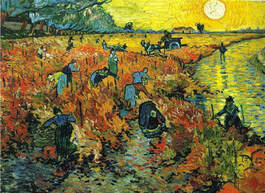 In Matthew chapter 20, Jesus is journeying from Galilee to Jerusalem. On the way he instructs and prepares his disciples for what lies ahead. One of the things Jesus talks about a great deal is the Kingdom of Heaven. According to Matthew, Jesus mentions it about 33 times in the Gospel. Indeed, it seems to be the main theme of his ministry. In Matthew, Jesus prefers this term to the Kingdom of God, which is the term used by the other synoptic gospel writers and sometimes by Matthew. The two terms seem to be interchangeable. In our passage today; Jesus says the Kingdom of Heaven is like a landowner, who went out early in the morning to hire day labourers to pick the crop in his vineyard. He goes out at 6am and chooses a number of workers and agrees with them to pay the usual daily wage of one denarius. It was not much; barely enough to feed a family. He then goes out later and sees other workers standing idle and tells them also to go the vineyard and he will pay them “whatever is right”. He does this at various times of the day, including at 5pm when he hires some standing around; to do one hour’s work. Then at 6pm, he calls in all the workers and tells his manager to pay them, beginning with the last and going through to the first. They each get one denarius. And the workers who started at 6am cry; “not fair.” The vineyard owner (God) tells them to take what belongs to them and if he chooses to pay the same to the last with his money; what is it to them? Do they begrudge his generosity? And the passage finishes; “so the last will be first, and the first will be last.” This seems a trifle tough on the first workers. We can understand their disappointment, that they didn’t experience the same generosity from the land owner as the last workers. But it does seem to illustrate the point that there are surprises a plenty in the Kingdom of Heaven. No one has any particular reservation or priority in the Kingdom of Heaven. No one has any particular status because they are rich and powerful. Nor for belonging to any particular tribe or race. Nor is there any particular benefit or customer loyalty system for long service. It does seem the case that we should be pleased we received an invitation at all to the vineyard and be grateful for it. Don’t expect to have a privileged position. The previous chapter in Matthew, chapter 19 ends with the same phrase. The rich younger ruler goes away sadly when told he should consider selling his possessions and giving it to the poor. Peter then asks to the effect, “well what’s in it for us?” Plenty says Jesus. But always remember, “many who are first will be last and the last will be be first.” So this does seem one important attribute of the Kingdom of Heaven. What are some of the other attributes? There are many and varied descriptions by Jesus in Matthew’s gospel, of what the Kingdom of Heaven is like. The Kingdom of Heaven belongs to the poor in spirit (5:3). We are to strive for it and we will receive all other things as well (6:33). Not everyone who calls out “Lord, Lord” will enter it, but only those who do God’s will (7:21). Many will come from east and west to eat in the Kingdom of Heaven, whilst the original heirs may be excluded (8:11). It is for those who actually carry out the work of the Kingdom and are ambassadors for it and proclaim the message that it has come near.” (10:7). It is like a tiny mustard seed that produces a great tree (13:31); and like a little yeast that leavens the whole flour (13:33) and like one pearl of great value that a merchant sells everything he owns to buy (13:44). The Kingdom of Heaven is like a king who shows great mercy to a slave and cancels his great debt, but also expects that slave to show the same mercy to people who owe him much lesser sums (18:23). It belongs to children (19:14) who are in fact the greatest in the Kingdom of Heaven and we are advised that unless we change and become like them, we will never enter it. (18:2). It belongs to those who go to work in the vineyard; not those who say they will but don’t actually do it. And tax collectors and prostitutes will apparently enter it ahead of chief priests and elders (21:30). It belongs to those both good and bad who turn up at the wedding, not to those invited but who don’t show up. But you have to be wearing the right robe. Because many are called but few are chosen (22:11). The greatest ones in the Kingdom of Heaven are those who are like servants and those who humble themselves. (23:11). It is made for those who are well prepared and bring oil along with their lamps to the wedding (25:1)and for those who put their talents to good use and are not afraid to use them (25:14). And finally it is for those who provide practical love and care to those in need and who are considered by society as the least (25:31). There are many other descriptions. So this is a lot to consider; what the Kingdom of Heaven is like, what it means to us and how we should respond to it. It seems it is many things to many different persons. It is perhaps a different way to live and think and act and to be. It is a call to all people to enter into a new experience. It is a call to enter into the one who makes all life whole. Let us pray:
Dear Mother God. We thank you for the rich meaning we find in so many passages of the bible. Such wisdom and treasure is in it. It helps us in so many ways, as to how we should think and feel and what we should strive for. We pray for our community in these difficult times and for those particularly who are experiencing pain and loneliness. We also thank you that for many, it is also a time of reflection and meaning and helps us simplify our lives. We hope that we can take forward some of the positive lessons we have learnt from this crisis and it helps strengthen our community connections and ways in which we can help and care for each other. We know so many of the lessons of the Kingdom of Heaven are how we should try to live here today, whilst we are on earth. And if we do so, we know we can face any challenge with courage and confidence. We pray we can live with gratitude and love and without fear. Amen Andrew Corish
Pastor Rick and his wife Lynne are enjoying a period of leave and so for the next few weeks the responsibility for sharing a Reflection will fall to others from the wider church family. The choice as to a holiday destination can, at times generate conflict! Some love a beach side holiday and are quick to deride those who love nothing better than to don their boots and head off for a walking holiday. Both choices are perfectly reasonable but preference (or is it prejudice and learned experience?) can sometimes see what should be a perfectly reasonable discussion degenerate into a heated and unpleasant exchange. In Romans 14, we see another example of debate and acrimony because of differences of opinion, tradition and learned experience. “One person’s faith allows them to eat anything, but another, whose faith is weak, eats only vegetables. The one who eats everything must not treat with contempt the one who does not, and the one who does not eat everything must not judge the one who does, for God has accepted them”. History shows that in the early Church Christians often disagreed with each other and as a consequence created problems for one another and for the wider movement we know today as Christianity. The reasons for such disagreements are to some extent lost in the passage of time and yet, as we view the world in which we live today, disagreement between denominations; between Congregations and between individual members continues to be evident. Romans 14 recounts how Paul sought to deal with such differences of opinion regarding rules about food and about days. Importantly, he quickly moves on to advocate that this is poor behaviour that can cause another to stumble. His antidote to this approach is to advocate that the focus should be on pleasing the other person instead of themselves. And, as Paul also notes in verses 10 -12 You, then, why do you judge your brother or sister? Or why do you treat them with contempt? For we will all stand before God’s judgment seat. It is written: “‘As surely as I live,’ says the Lord, ‘every knee will bow before me; every tongue will acknowledge God.’” So then, each of us will give an account of ourselves to God Maybe history does no more than demonstrate that we are slow learners. Are we so bound up in our own beliefs, practices and perspective that we have lost or forgotten the obligation to ‘’Love one another as I have loved you’’? I spent the last 18 years of my professional life working as a Business Mentor and as an advisor to business on strategy. One of the tools I used in the course of providing mentoring and advice was the well-known concept of a Venn Diagram. That wonderful and ubiquitous source of information, Wikipedia defines a Venn diagram as “A Venn diagram is an illustration that uses circles to show the relationships among things or finite groups of things. Circles that overlap have a commonality while circles that do not overlap do not share those traits. Venn diagrams help to visually represent the similarities and differences between two concepts”. A typical Venn diagram looks like intersecting circles – what follows is an illustration of the intersection of two circles but of course more circles could be added! The importance of this concept is not the physical diagram but rather the interpretation.
Critically - is our focus on the dark portion where there is overlap or on the lighter sections where there is individuality? Put another way, if we are to apply the Venn diagram concept to how we live our lives, are we focussed on what brings us together (the overlap) or the things that keep us apart? Might I suggest that all too often today, in a world and society that is understandably stressed by COVID; economic pressures; climate change and social media and so much more, we are confronted with political, media and business tactics that seemingly have at their base a focus on difference! If that is all there is then what happens next? Do we simply learn to live with in a framework of winner takes all or perhaps will the seeming increase in focus on difference rather than commonality become the trigger that inspires resistance and alternative action? In thinking through this dilemma, I am reminded that the strength of a rope comes from the entwining of multiple strands. If the rope was to comprise a single strand, then it will break under the smallest amount of pressure. But, with strands entwined, the rope is strong, resilient, capable of coping with great force. The following provocative quote is attributed to Nelson Mandela Our world is not divided by race, colour, gender or religion. Our world is divided into wise people and fools And fools divide themselves by race, colour, gender and religion In these difficult times where (sensibly) the desire to restrict harm and ill-health to others has meant that our capacity to hug and physically support those in physical or mental anguish, or who are lonely or who are frightened about the present and the future has been restricted, it seems to me that now more than ever we need to seek out those things that can bring us together. Strident, negative voices will always exist but there can be no doubt about the power of quiet, calm, compassionate people working together for the common good. This is a time to stand out from the crowd and to stand up as the people of God focussed on the Good News for the benefit of all. Loving, caring, forgiving God. Strengthen us so that we may live out your example of offering a loving embrace to those in need. We ask this day that you give us the will and the courage to act rather than to judge. To act with generosity and compassion. To act not for ourselves alone but for our community – whether in Lane Cove, across Australia or throughout the world. Help us to remain bold as we strive to bring reconciliation and goodwill to all whom we encounter. Amen
“80 percent of life is just showing up.”
This well-known quote, often attributed to actor and director Woody Allen, indicates the importance of presence in life. And it makes sense, after all, you can’t get ahead if you aren’t there to receive it. In times of crisis, a friend’s simple presence is often worth the most. A child or teenager in a school production or sporting event will scan the crowd for a familiar face to cheer them on. Showing up matters. “Present your bodies as a living and holy sacrifice” Paul writes to the believers in Rome. It’s the ancient version of the above quote, reminding believers of the importance of showing up for God. Paul lays out that how we engage our physical selves is a reflection of our faith and he puts it in terms that they would understand, referencing practices of sacrifice. However, instead of a specific animal brought to the temple, Paul calls it a “living sacrifice,” a phrase that plays on what is known with something new. For Paul, our presence is not some sacrifice that ends in death, but instead is a consecration or dedication to the will and work of God that is life-giving. It marks renewal and wholeness and is even included in many of our communion prayers as a sign that we wish to be made new by God at Christ’s table. Therefore, we present ourselves, freely and openly, trusting that when we show up, God does too. But, as another clichéd phrase goes, “showing up is half the battle.” For Paul, there is more to embodied faith than just physical presence. It also involves an opening of the mind. In order to be our most faithful selves, we need to wrap our minds around things in new ways, ways that push and challenge us to better examine ourselves, our communities, our nation and even our world. However, I think we have to do more than just show up; we have to think about what we’re doing, too. It’s easy to fall into the trap of just going through the motions without really engaging our minds. This is especially true when it comes to our worship. We like to be lulled and comforted and sometimes that’s what we need – a sanctuary from all the chaos and conflict that’s happening in our world, a haven from the shouting pundits and not-so-funny comments and arguments in social media threads. Nevertheless, I don’t think that’s what Paul had in mind for the early church, certainly not in Romans. If anything, the Roman church had a very persuasive argument for the need for shelter and separation from the world. They were under attack, persecuted by the Empire, forced into hiding because of very real risks. But even then, perhaps especially when the world was at odds, Paul called them to reflect on the ways of the world, so that they would not conform to the evils that surrounded them, but could be transformed by the renewing of their minds – something that happened in the context of true, authentic worship within the body of Christ. We must be ready to challenge those parts where the present age shouts, or perhaps whispers seductively, that it would be easier and better to do things that way, while the age already begun in Jesus insists that belonging to the new creation means that we must live this way instead. We have to be a people who personify, in body and mind, what it means to live with Jesus Christ as our Lord, not anyone or anything else. Worship can be a place where we find a balance point of human initiative and divine intervention as we grapple with the concerns of our day and seek to understand what the will of God is in the midst of it. When we’re transformed, we’re able to be a true witness to the work of Jesus Christ. The beginning point of that witness starts with us. It starts with our honest and humble admission that we are prone to conforming to the world’s standards for life and that through our conforming, through our inaction, and through our silence, we have been complicit in the escalation of discord and disharmony within our society. This is a part of the renewing of minds that has to take place within us to live into our identity as the transformed body of Christ. The second part of today’s reading reminds us that God’s work isn’t just a solitary event of internal change. It is, in fact, an act of community and as such, we’re reminded to not get too big in the head, but instead consider what our transformed selves might offer. We’ve been transformed for a reason; to be a part of the body of Christ in the world. During the Civil Rights movement in the US, Rev. Dr. Martin Luther King, Jr. had this to say about our work: “Human progress never rolls in on wheels of inevitability; it comes through the tireless efforts of men willing to be co-workers with God, and without this hard work, time itself becomes an ally of the forces of social stagnation. We must use time creatively in the knowledge that the time is always ripe to do right.” Paul invites us to participate in that through the genuine giving of ourselves as a living sacrifice before God, opening ourselves in body and mind to the work God might do in us, with us, and through us. Our passage begins with Paul begging his listeners to action, using the words “I appeal to you.” Paul is encouraging his readers, and us, to respond to our faith by offering ourselves to be transformed by God and engaged in the work of God’s kingdom. Romans 12 is a call to action for the church in the present age. It starts by us showing up and it continues by us trying to wrap our minds around the issues of our world and the holiness of God’s will for us in it. It leads us into being the body of Christ and it places us in the position to renew our commitments as followers of Jesus Christ. I appeal to you, brothers and sisters in Christ, to take part in this joyous thing God is offering. Hear Paul’s words in verses 1 and 2 as an encouragement and a charge to you in these moments, made fresh to our modern ears by Eugene Peterson’s adaptation in The Message: “So here’s what I want you to do, God helping you: Take your everyday, ordinary life - your sleeping, eating, going-to-work, and walking-around life - and place it before God as an offering. Embracing what God does for you is the best thing you can do for him. Don’t become so well-adjusted to your culture that you fit into it without even thinking. Instead, fix your attention on God. You’ll be changed from the inside out. Readily recognize what he wants from you, and quickly respond to it. Unlike the culture around you, always dragging you down to its level of immaturity, God brings the best out of you, develops well-formed maturity in you.” I pray that we be transformed in this way. Amen. I trust that you are receiving some helpful spiritual feeding with these weekly Reflections. Even in these COVID-19 times, we still need sustenance - so Lynne & I are taking 6 week’s Annual Leave. Whilst we’re on leave, others will be bringing you the weekly Reflection, so we thank them for their assistance and dedication in keeping the message flowing. Pastor Rick |
Pastor
|
LANE COVE
|
Worship Service:9:30am Sunday
© Lane Cove Uniting Church | 2020
|

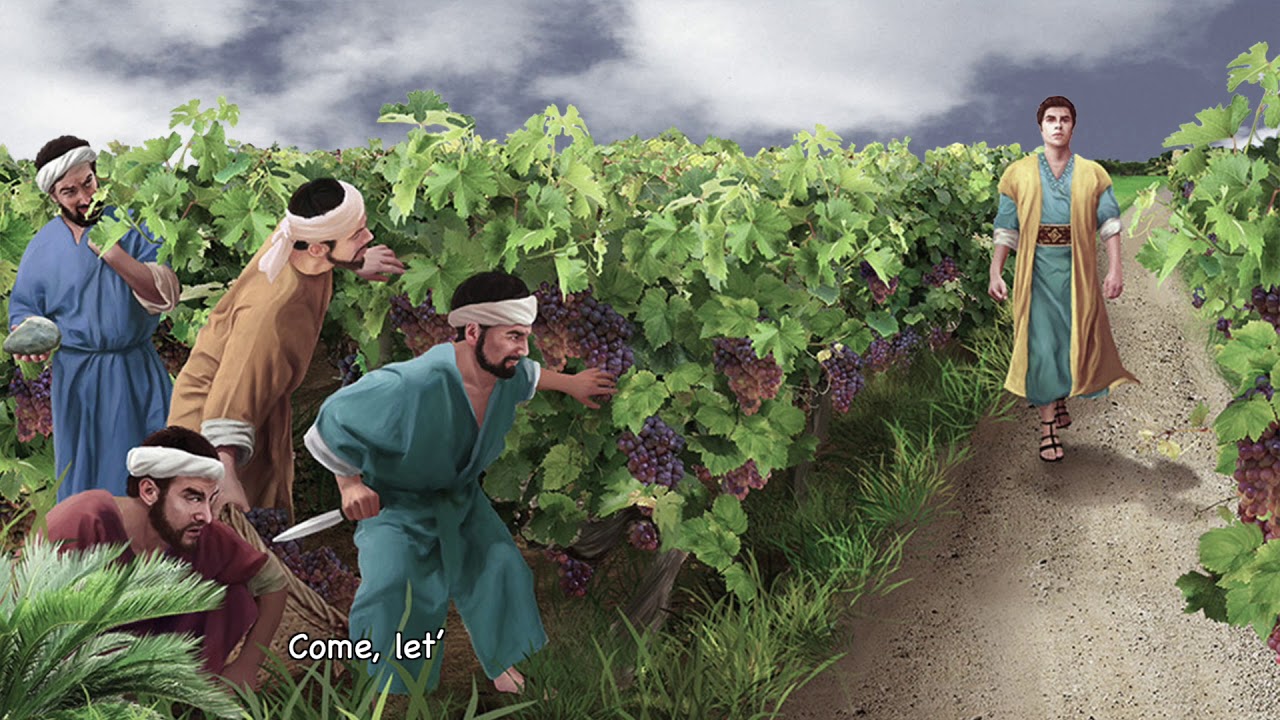

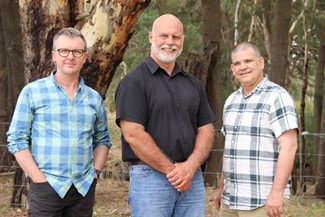

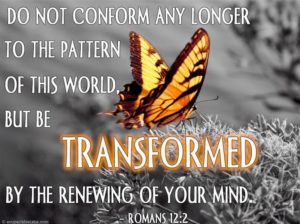
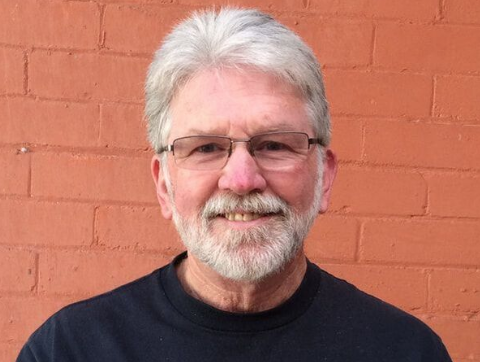
 RSS Feed
RSS Feed